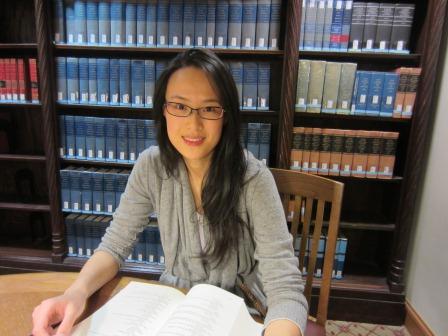A post from our student blogger Sarah Goodman
 I recently interviewed Catherine (Shu) Zhang, a current MSPL student, about her capstone thesis project.
I recently interviewed Catherine (Shu) Zhang, a current MSPL student, about her capstone thesis project.
- 1. In general terms, what is your capstone project about?
My capstone project is about using a novel chemical reaction to find a treatment option for Niemann-Pick Type C disease. The resulting treatment option may have broader applications in alleviating illness caused by cholesterol build-up. Niemann-Pick Type C disease is a severe illness, and there are a lot of research efforts at the University of Notre Dame focusing on this disease.
2. What have you completed so far on your capstone project?
I have completed a synopsis of the project and drafted a set of potential claims. I also performed a patentability search covering domestic and international patents and patent applications. I researched a wide range of non-patent literature which broadened my technical perspective regarding chemistry and pharmacology. I will present all of this information in my technical presentation in December.
3. What have you learned this semester through working on this project?
I learned more about lysosomal storage diseases like Niemann-Pick Type C disease and other categories of disease related to cholesterol trafficking. Having a capstone project with an actual invention gives me a real world experience of how a patent application is prepared before I enter the workforce.
4. What major challenges did you face? How did you solve them?
The most difficult challenge for me was learning new complicated scientific material quickly in a new field. I handled this challenge by reading a lot of scientific literature in the field. I also researched published patents to study the proper form of a chemical patent.
5. How has your project prepared you for a career as a patent agent?
My capstone project has prepared me in two major ways. The first is that I have learned how to communicate effectively with an inventor to get an accurate understanding of an invention. I also have broadened my technical field by learning the chemical background of a technology.
6. Which of your abilities do you think have helped you succeed with your project?
My persistence has been an important quality when researching different technologies as well as my interest in the science field. My writing ability has also been crucial for rephrasing complex chemical procedures into legal terms for IP protection.
7. What are your career plans for the future?
I think that obtaining a Master of Science in Patent Law from the University of Notre Dame will open many doors for my future career. I am currently considering the career options of a patent agent at a technology transfer office or a law firm.